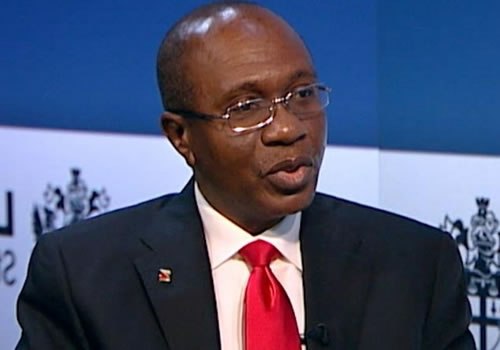Against the backdrop of the escalating global trade wars, Mr. Godwin Emefiele, the governor of Central Bank of Nigeria, CBN, has urged Nigeria to take measures to protect the local economy.
Delivering the keynote address at the annual CBN seminar for Finance Correspondents and Business Editors in Lokoja, Kogi State on Wednesday, Emefiele hinted that the apex bank’s decision to restrict 41 items from accessing official foreign exchange resources two years ago was in line with this measure.
Earlier at the just-concluded Annual Meetings of the World Bank and International Monetary Funds, IMF, in Indonesia, Senator Udoma Udoma, the Minister of Budget and Planning, had told the global financial community that Nigeria was reviewing its stance on the African Continental Free Trade Area which the country could not sign, apparently due to possible threat it poses to the domestic economy
Emefele noted that selective protection was necessary to address the challenges confronting the nation’s economy.
He stated: “In today’s world, countries have used trade protection repeatedly as a policy to resolve negative perceptions and shocks in their respective countries’’.
Posing a rhetorical question on the circumstances prevailing against free trade, Emefiele queried: ‘‘Should Nigeria, with insatiable taste for foreign goods to the detriment of the domestic economic realities (unemployment and imported inflation), throw its borders open to indiscriminate importation of goods and services?
“This was the prevailing condition in Nigeria before the introduction of restriction of official foreign exchange for the importation of some 41 items. It was an eclectic policy, carefully crafted with a view to reversing the multiple challenges of dwindling foreign reserves, contracting Gross Domestic Product GDP-recession and an embarrassing rise in the level of unemployment, confronting the economy.
“The implementation of the 41 items, in addition to the other complementary macro-economic policies, no doubt, was effective in lifting the Nigerian economy out of recession.’’
Emefiele listed the policy outcomes of the restrictive measures to include ‘‘the real GDP grew by 1.40 per cent in the third quarter of 2017, up from 0.72 per cent, and contraction of 0.91 per cent in the second and first quarter of 2017, respectively. Also, there has been improved reserve accretion to the country’s reserve.
“Given these salutary effects on the economy; it can be argued that the stance of classical economists argued that trade protectionism notwithstanding, to override the utility of selective protection in form of the 41 items to resolve the challenges facing the economy can hardly be overemphasized.
“Pragmatic economic nationalism therefore, would ordinarily vote in favour of protecting the domestic economy, as long as it does not infringe upon the tenets of ‘beggar-thy-neighbour’ policies.”

